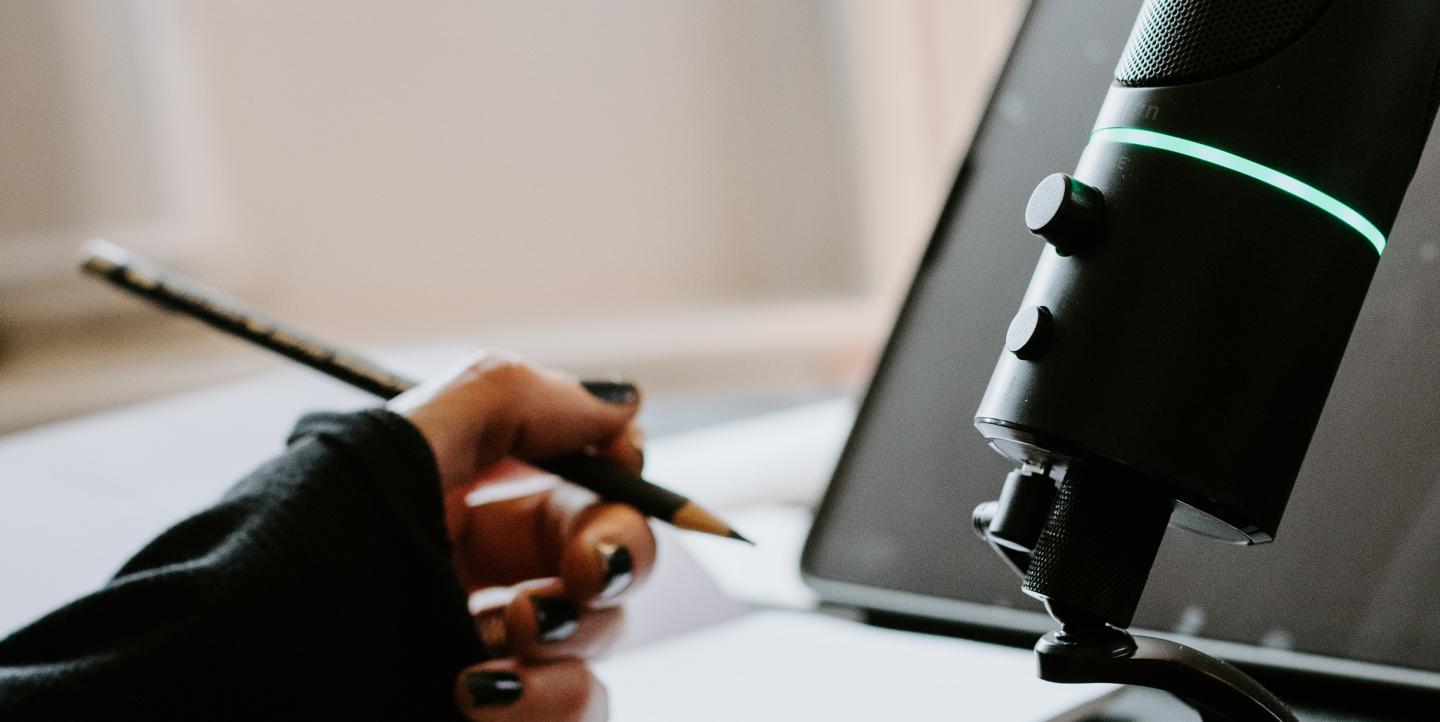It has been challenging for journalists to carry out their reporting during the pandemic. Many of us have avoided carrying out our work in-person if we can, instead often doing so through a computer screen.
In this context, we must keep reporting, pitching stories and gathering news. We have learned a lot over the past year as we have found ways to cover stories remotely without missing the complexities of the world.
While a lot can be lost in virtual interviews, we've compiled tips to help you practice empathy, preserve your wellbeing and listen as best as possible to what your interviewees have to say.
(1) Avoid scheduling a video call if can be done by phone
Focusing on the screen causes wear and tear for both the journalist and the interview subject. It's not always necessary to see each other to conduct an interview.
(2) Take 10 minutes to “get in the mood” before the interview
If you have children at home, for example, it is important to make sure that they are busy and calm so that you feel mentally available to listen to someone else.
Do not hesitate to surround yourself with what makes you more willing to listen and able enter the universe of your interview subject. This could mean grabbing a cup of coffee, or maybe using a space in your home other than your desk — just don't forget the headset. The goal is to avoid starting the interview stressed out.
[Read more: Tips for producing a live webinar on Zoom]
(3) Try to start with something positive
You can preface your interview by saying something like:
- "I'm so happy to be able to talk with you;"
- "Thanks for your availability;" or
- "It's nice to be able to meet you."
Avoid saying something negative that highlights the technical difficulties of a Zoom interview.
(4) Let the person know the length of the interview before starting
Whether it's a 10-minute chat or a more complex half-hour interview, it's a good idea to discuss the schedule beforehand, and then again at the start of the interview.
(5) Communicate if you do not intend to use the interviewees' image or video
This will allow them to feel more comfortable and not worry so much about their appearance.
(6) Ask your interview subject to describe their surroundings. Use open-ended questions when relevant.
For example, you could ask:
- "Could you describe your workspace?"
- "How do you feel working from home?" or
- "Which corner of your home do you like most?"
These kinds of questions aim to encourage interviewees to provide some humanizing details that you can add to your story. For instance, they might share about what's being made for dinner, an interesting family photo, a nearby window with fresh air and birds singing outside, and so on.
As we lose part of our capacity of observation by working remotely, thinking about the five senses and bringing these details in can be useful to in order to “enter” the person's home.
[Read more: Remote video interviews: All you need to know]
(7) If you notice that the recording quality is poor and the interviewee cannot move to another spot, ask them to cut the camera. If the content is good enough already, shorten the call.
If you need more time to speak with your interview subject, you can switch to a conventional call. This will avoid wasting time discussing and trying to resolve the technical issues.
(8) Keep your interviewee focused on the subject you are discussing. Refocus them if necessary.
Perhaps the person feels lost and is talking more than necessary to explain a point. You can say: “I remember you were saying something very important, could you please repeat that part?” Or try to change the focus: "Would you like to take a short break?"
You as a journalist can also take a break. You can take the opportunity to take a deep breath, and focus on what is essential in the interview and return to your agenda. Ask yourself: Why am I talking to this person? Or: what can only this person tell me?
(9) Before concluding the interview, ask if there is anything important the interviewee would like to discuss that you haven't already covered.
This indicates to them that their words have been heard and respected, and it naturally helps end the interview.
(10) Let your interviewees know when you stop the recording and ask them if there is anything that they would like to say off the record.
It's important that these boundaries are clear, even in the virtual world.
Marie Naudascher is a radio journalist and works as a correspondent for Europe 1 radio in Brazil.
This article was originally published by our Portuguese site. It was translated to English by Renata Johnson.
Main image CC-licensed by Unsplash via Kelly Sikkema.


